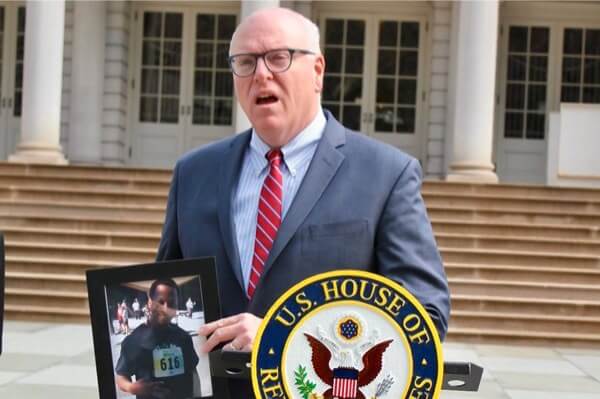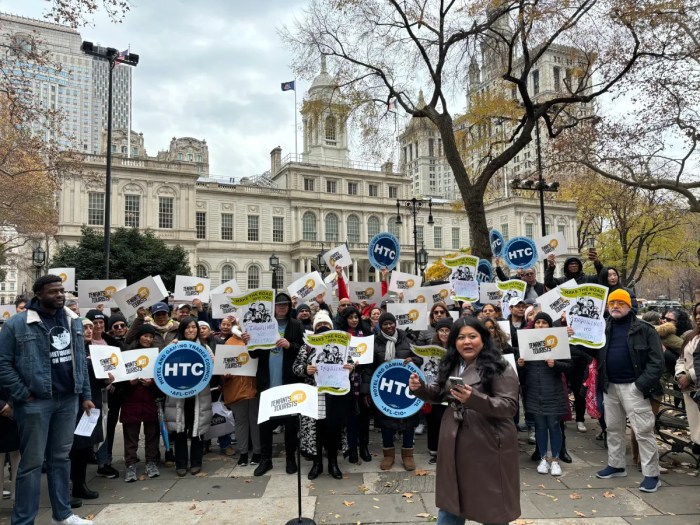By Bill Parry
Clutching a picture of Kalief Browder on the steps of city hall Monday, U.S. Rep. Joseph Crowley (D-Jackson Heights) announced his new legislation named in his honor, which seeks to improve mental health services for the formerly incarcerated.
Crowley’s bill, called the Kalief Browder Re-Entry Success Act, after the 16-year-old who spent three years on Rikers Island, much of it in solitary confinement.
The Bronx teen was frequently beaten by guards and inmates and was never formally charged with stealing a backpack. When Kalief was finally released, he struggled with the trauma he endured while in jail, eventually committing suicide in 2015.
“Tragically, Kalief’s story is not uncommon,” Crowley said. “The formerly incarcerated often struggle to understand and deal with their mental health challenges alongside the myriad of difficulties they face integrating back into society. And those who were treated for existing mental health issues while in prison often face discontinuity of treatment and services once they are no longer in the system. We have a moral obligation to do what we can to ensure successful community re-entry and that means providing the resources necessary for people with mental health challenges to get help. And with this new bill, I hope we can do just that — as well as help prevent future tragedies.”
Crowley’s bill would instruct the attorney general and the director of the National Institutes of Mental Health to set up a pilot program that seeks to assess the mental health of prisoners before they leave prison and provide continuity of mental health and other community services after release. Under the legislation, both the U.S. Bureau of Prisons as well as state and local departments of corrections will submit proposals in conjunction with organizations that provide mental health and other social services outlining the program they intend to set up and the services they will provide to exiting offenders.
The attorney general, in determining grant recipients, will give priority to those facilities with a high percentage of prisoners in restrictive housing as well as a high percentage of recidivism and re-incarceration among individuals recently from the facility or facilities under their jurisdiction.
“If mental health services had been provided prior to and directly upon Kalief Browder’s release from Rikers Island perhaps it could have changed his fate,” Browder family attorney Paul Prestia said. “This legislation will ensure that those who’ve had their mental health compromised in prison are at least afforded some semblance of care to facilitate their return to society.”
According to an analysis by Health Affairs magazine of a Bureau of Justice Statistics report, 50 percent of men and 75 percent of women incarcerated in state prisons will experience a mental health problem requiring mental health services in any given year. The Fortune Society, a Long Island City-based organization that helps the formerly incarcerated re-enter society, strongly supports the Kalief Browder Re-Entry Success Act.
“Over the 50 years since our founding, we have served literally hundreds of thousands of individuals trying to rebuild their lives after release from incarceration,” said JoAnne Page, president and CEO of The Fortune Society. “We recognize the urgent need for provision of mental health services for those returning home, both for their sakes and for their families and communities. We are glad to see the bill named after Kalief Browder in the hope that his tragic death will result in services to prevent future similar tragedies.”
Reach reporter Bill Parry by e-mail at bparr





































